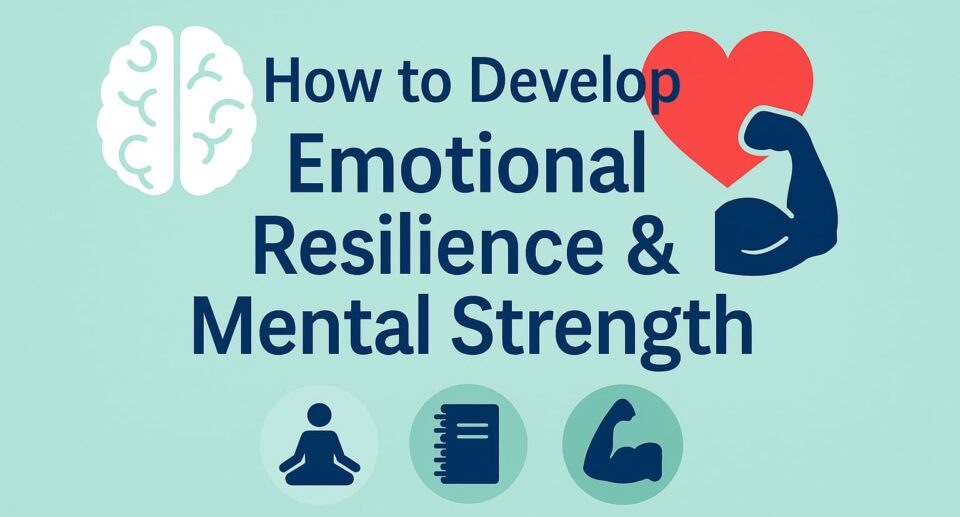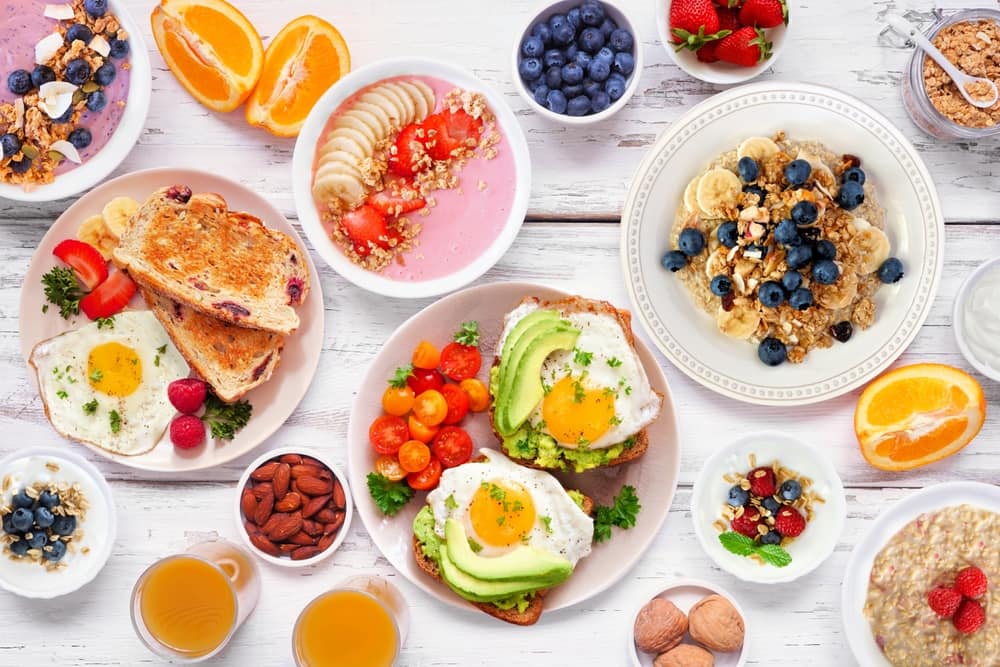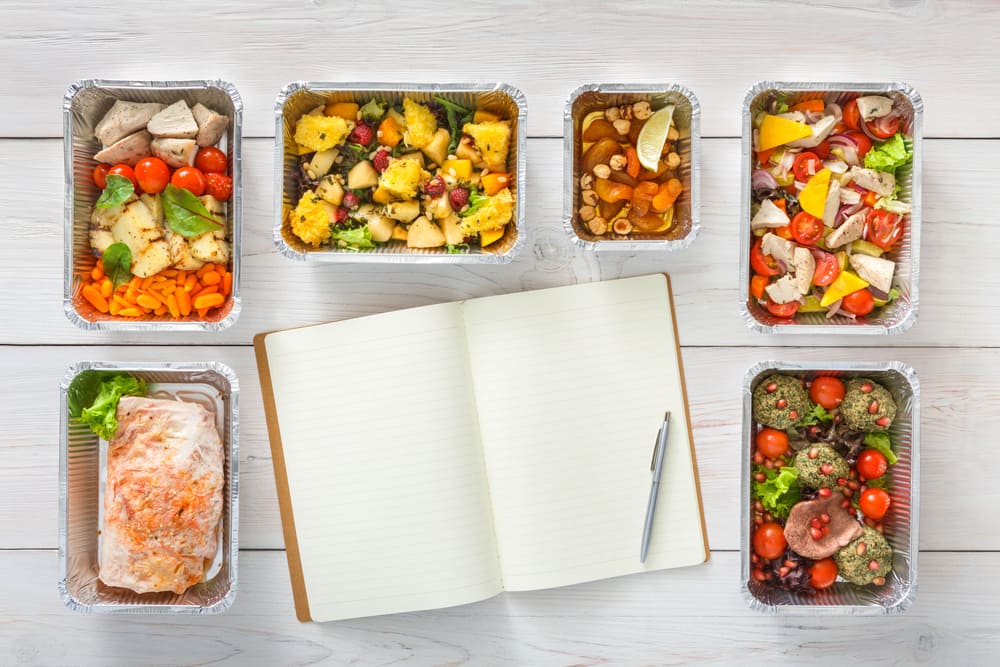Best protein sources for muscle growth and recovery
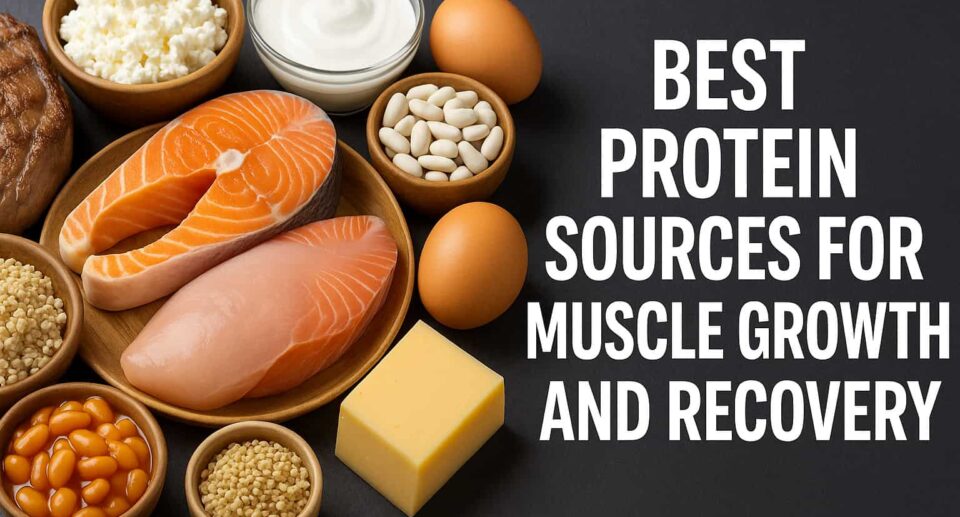

Fueling Strength & Recovery
Building muscle isn’t just about lifting heavier weights or pushing through intense workouts. The real magic of muscle growth happens when your body repairs and rebuilds after training. At the heart of this recovery process lies protein, a macronutrient that provides the essential amino acids your muscles need to heal, grow stronger, and recover faster.
For fitness enthusiasts, athletes, or anyone trying to stay fit and energized, choosing the right protein sources can make the difference between steady progress and frustrating plateaus. In this article, we’ll uncover the best protein-rich foods to support muscle growth, enhance post-workout recovery, and keep your energy levels at their peak.
Why Protein Matters for Muscles
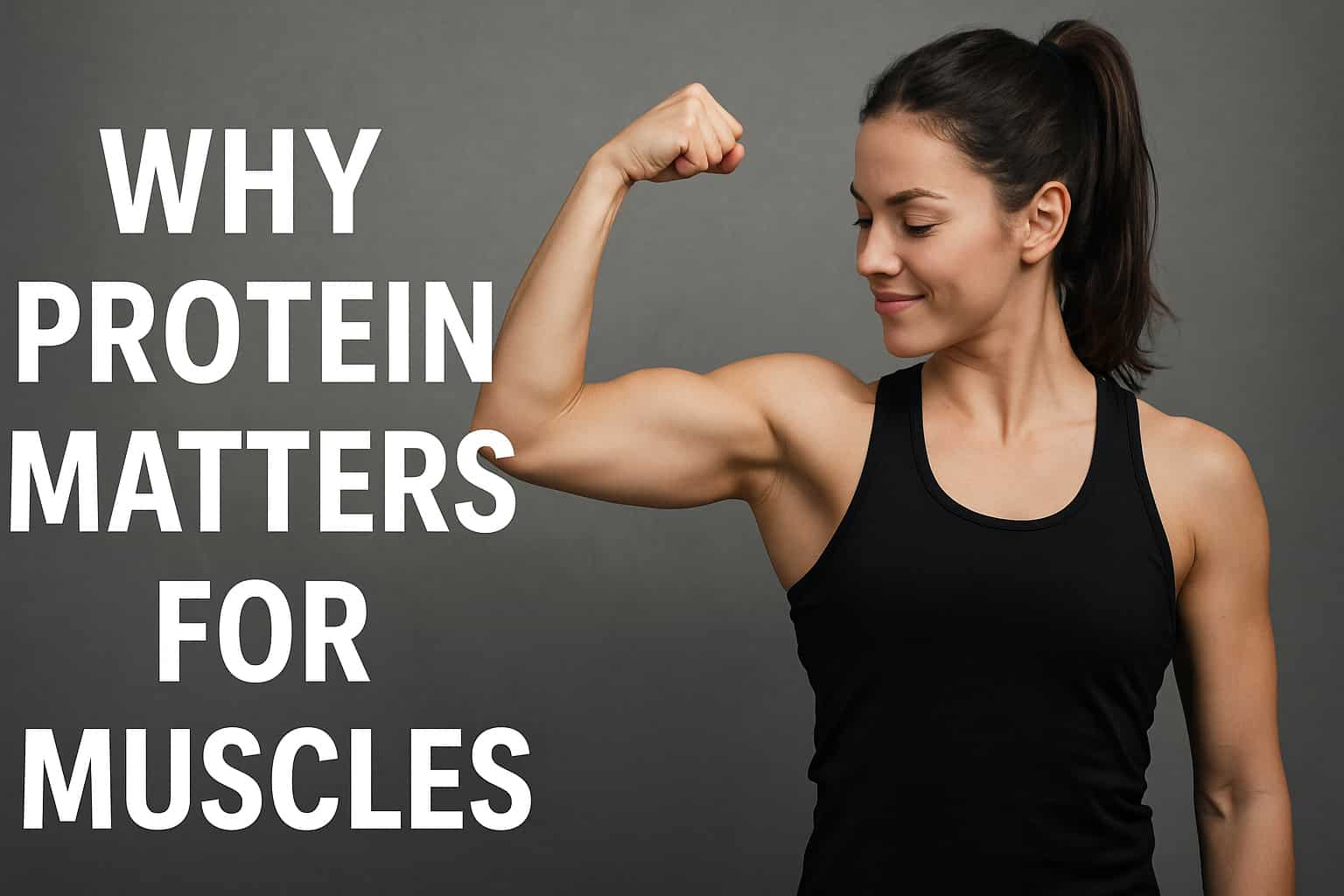

Protein is often called the “building block of life”, and when it comes to fitness, that title is well deserved. Your muscles are made up of protein structures called myofibrils, which break down during exercise and need repair afterward. By consuming enough protein, you supply your body with the amino acids necessary to repair microtears in muscle fibers a process that makes them stronger and larger over time.
Studies have shown that athletes and active individuals benefit from a higher protein intake than sedentary people. According to the National Institutes of Health (NIH), the recommended daily allowance for protein is about 0.8 grams per kilogram of body weight, but for muscle growth, experts often suggest 1.2–2.0 grams per kilogram depending on activity level.
Protein doesn’t just repair muscles it also:
Reduces muscle soreness after workouts
Supports immune function and energy levels
Helps with satiety, preventing overeating during recovery
Top Animal-Based Protein Sources
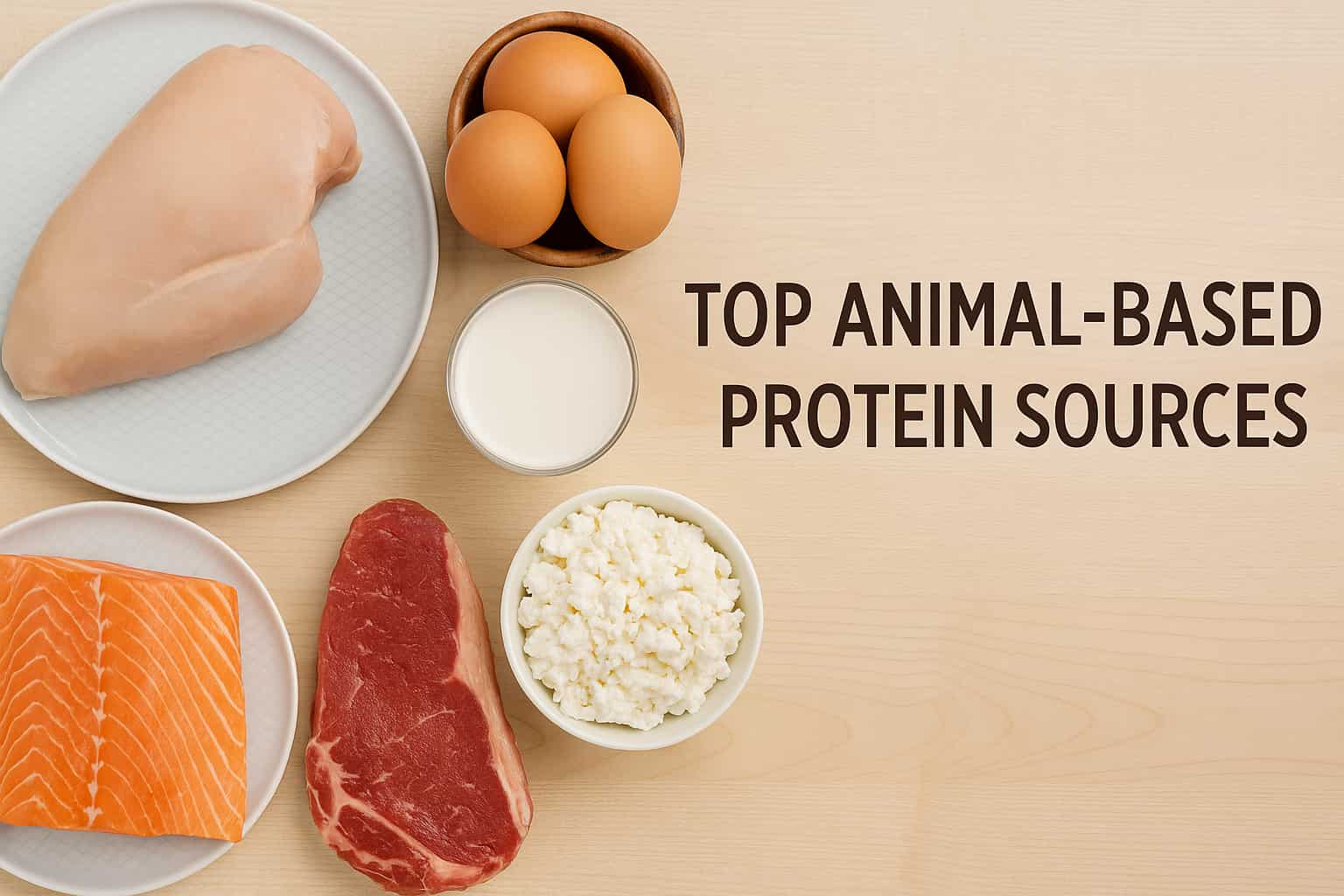

Animal-based proteins are considered “complete proteins” because they contain all nine essential amino acids your body cannot produce on its own. These sources are highly bioavailable, meaning your body can easily digest and absorb them for muscle repair and recovery. Here are the best options:
🥩 Lean Meats
Chicken breast and turkey are classic choices for athletes. They’re high in protein yet low in fat, making them ideal for lean muscle growth.
A 3-ounce serving of chicken breast provides around 26 grams of protein with minimal calories.
🥚 Eggs
Known as one of nature’s most perfect foods, eggs deliver high-quality protein and essential vitamins.
The egg white is almost pure protein, while the yolk provides healthy fats and nutrients like vitamin D and choline.
One large egg contains about 6–7 grams of protein.
🐟 Fish & Seafood
Salmon, tuna, and cod are not only excellent protein sources but also packed with omega-3 fatty acids, which reduce inflammation and speed up recovery.
A 3-ounce serving of salmon contains about 22 grams of protein.
🥛 Dairy Products
Greek yogurt, cottage cheese, and milk are rich in casein and whey proteins, which are digested at different speeds—helping with both immediate and sustained recovery.
A single cup of Greek yogurt offers around 15–20 grams of protein.
✅ Tip: If you’re following intense training routines, alternating between fast-digesting proteins like whey (post-workout) and slow-digesting proteins like casein (before bed) can maximize recovery.
Top Plant-Based Protein Sources
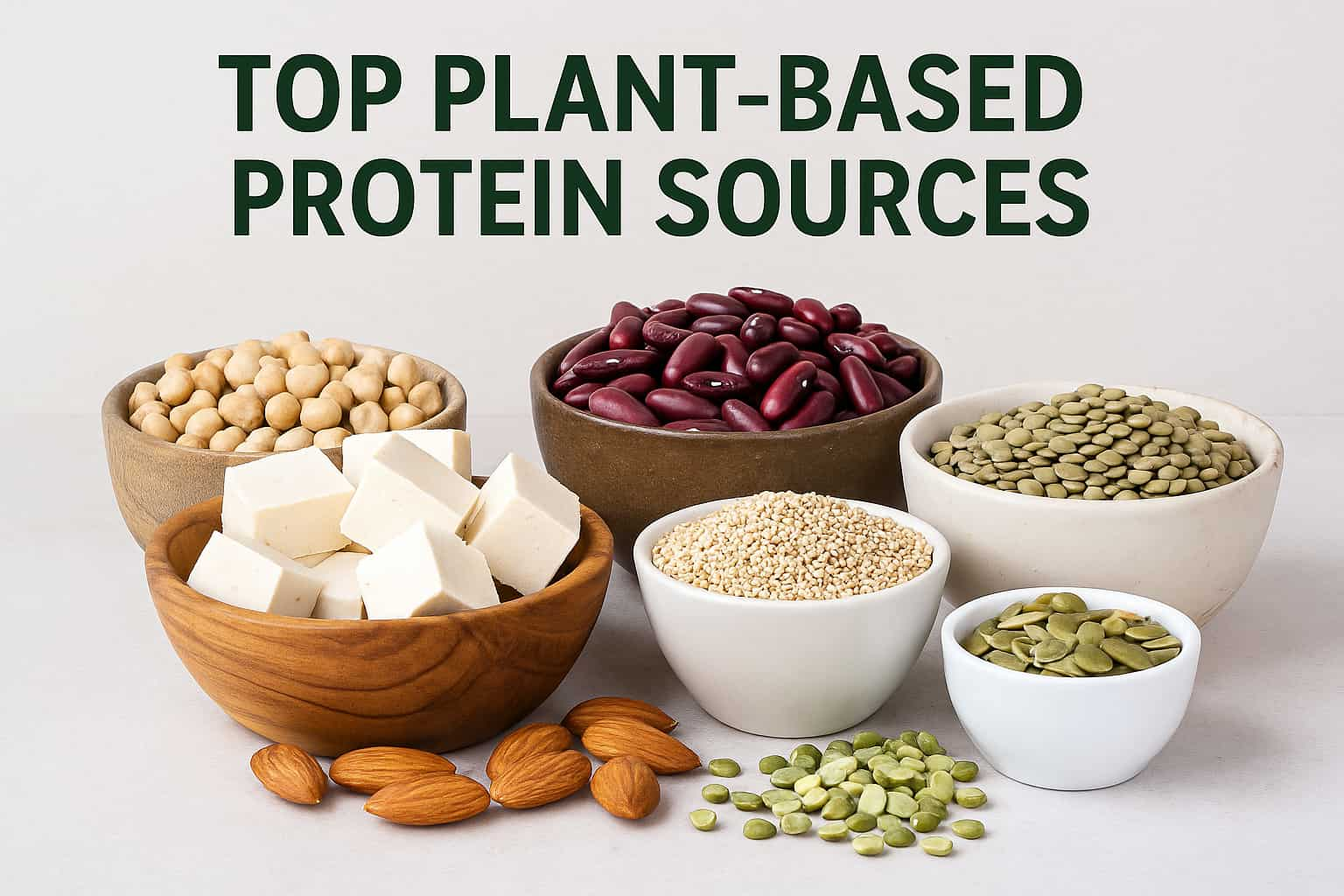

Plant-based proteins are becoming increasingly popular—not just among vegans or vegetarians, but also fitness enthusiasts looking for healthier, more sustainable options. While some plants lack one or more essential amino acids, combining different sources can easily provide a complete protein profile for muscle growth and recovery. Here are some of the best picks:
Legumes
Lentils, chickpeas, and black beans are excellent protein-rich foods that also supply fiber and essential minerals.
One cup of cooked lentils offers about 18 grams of protein.
Quinoa
Unlike many grains, quinoa is a complete protein containing all essential amino acids.
One cup of cooked quinoa provides around 8 grams of protein, along with magnesium and iron for energy and recovery.
Soy Products
Tofu, tempeh, and edamame are versatile soy-based proteins that pack a punch.
Half a cup of tofu contains about 10 grams of protein, while tempeh offers around 15 grams per serving.
Nuts & Seeds
Almonds, chia seeds, and hemp seeds make excellent snacks and smoothie add-ins.
Just 3 tablespoons of hemp seeds provide about 10 grams of protein plus omega-3 fatty acids.
Plant-Based Powders
Pea protein and brown rice protein powders are convenient supplements for post-workout shakes.
When blended, they provide a complete amino acid profile similar to whey protein.
Pro Tip: Pairing foods like rice and beans or peanut butter on whole-grain bread ensures you’re getting all the amino acids needed for muscle repair.
Protein Timing for Maximum Recovery
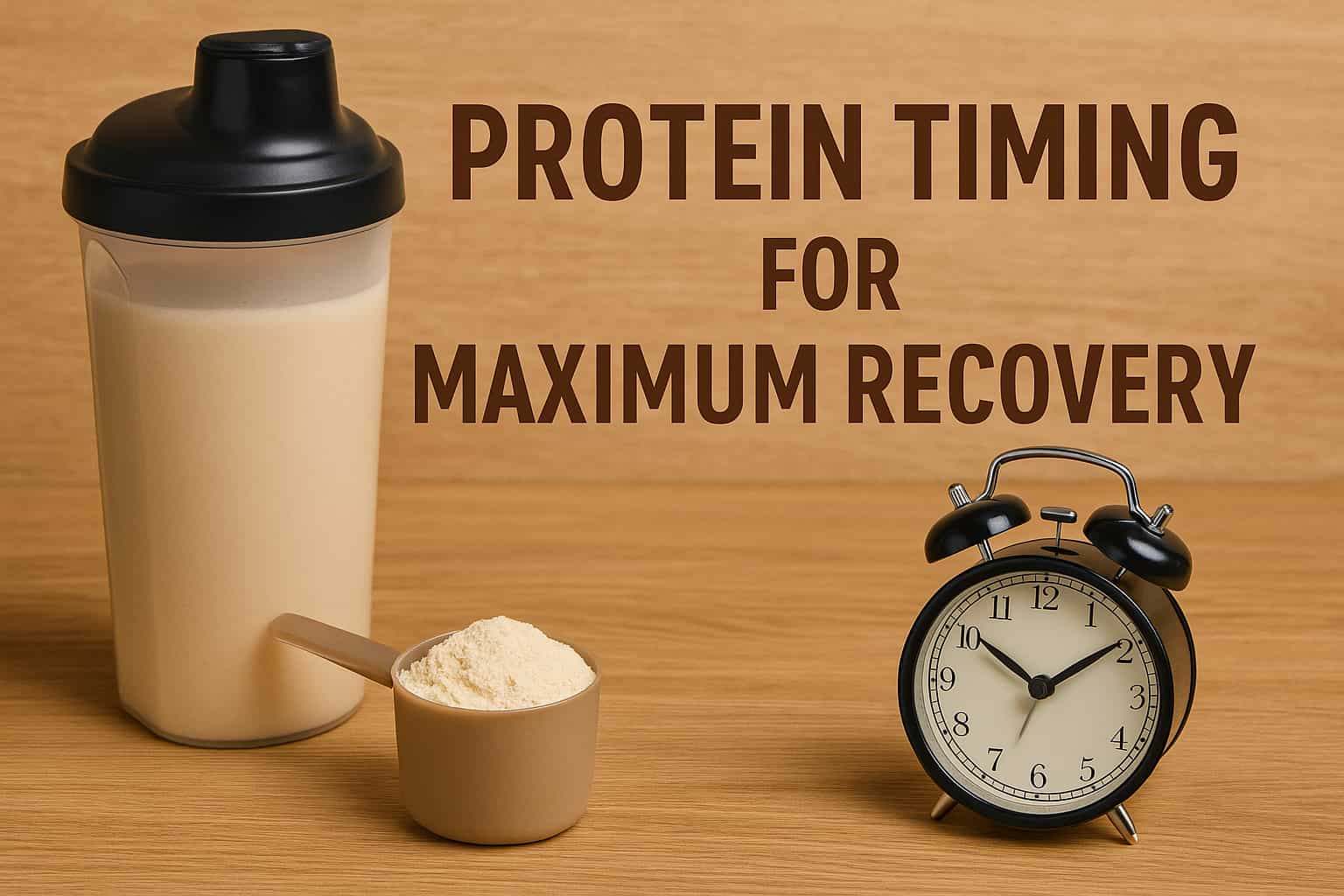

It’s not just what you eat, but also when you eat it that influences muscle growth. Strategic protein timing helps your muscles recover faster, reduces soreness, and maximizes strength gains.
🕒 Post-Workout Window
Consuming 20–30 grams of protein within 30–60 minutes after exercise is ideal.
This window is when your muscles are most receptive to nutrients and can quickly use amino acids for repair.
A whey protein shake, Greek yogurt, or grilled chicken with rice are excellent choices.
🌙 Before Bed
Slow-digesting proteins like casein (found in cottage cheese or casein powder) provide a steady release of amino acids overnight.
This supports muscle recovery while you sleep a critical period for growth.
⏰ Spread Throughout the Day
Instead of cramming all protein into one meal, aim to spread intake across 3–5 meals/snacks.
Research shows evenly distributed protein intake leads to better muscle protein synthesis compared to having it all at once.
🚀 Pre-Workout Boost
A small serving of protein before training (like eggs or a smoothie with plant protein) can help reduce muscle breakdown during intense exercise.
✅ Quick Reminder: According to Healthline, athletes should aim for 1.2–2.0 grams of protein per kilogram of body weight daily, divided across meals for optimal muscle growth.
Smart Ways to Add Protein to Your Diet
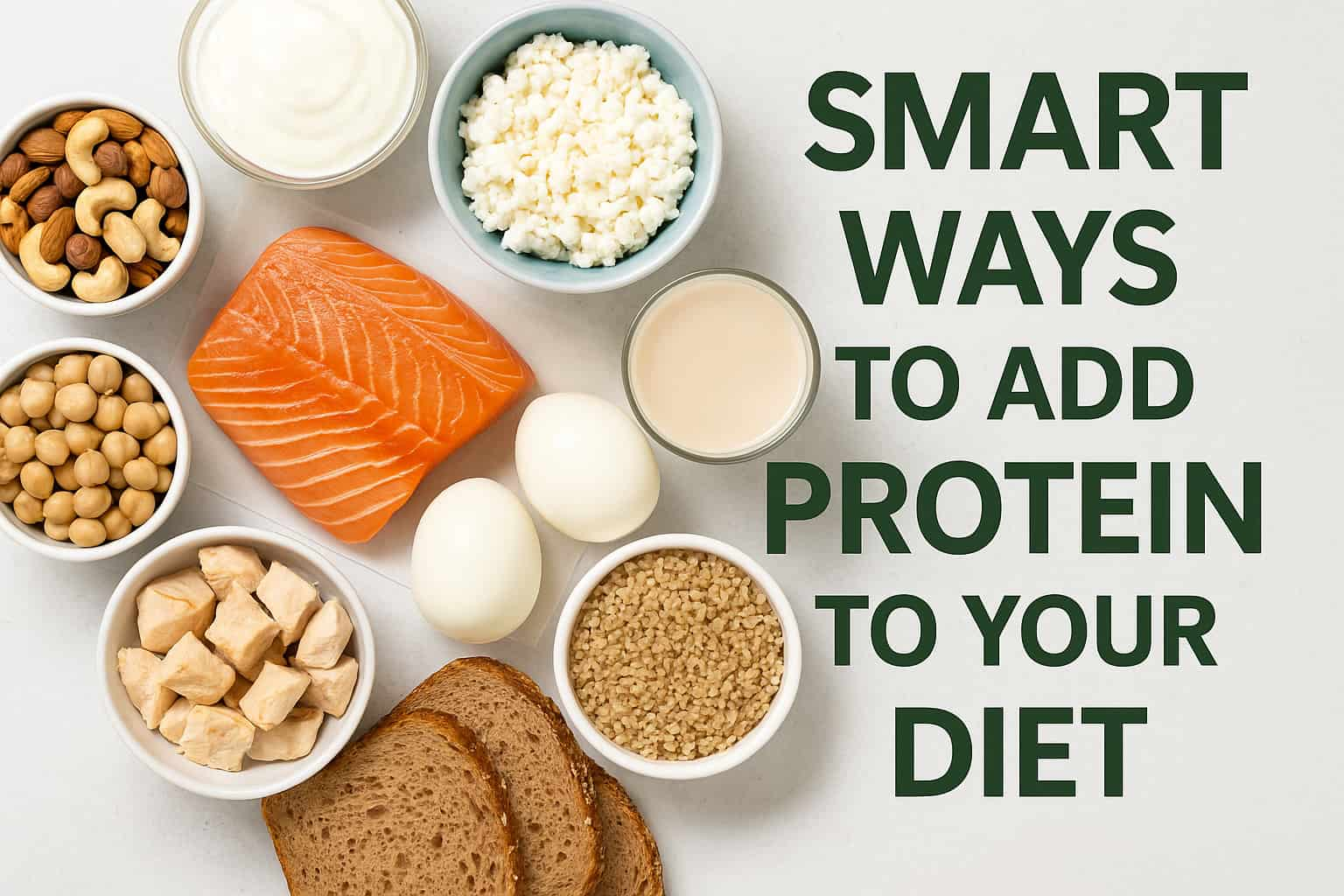

Hitting your protein goals doesn’t have to mean eating plain chicken and eggs every day. With a little creativity, you can make protein intake both enjoyable and sustainable. Here are some effective strategies:
🍳 Upgrade Your Breakfast
Swap sugary cereals for Greek yogurt with chia seeds or a veggie omelet.
Add a scoop of protein powder to oatmeal or smoothies for a quick boost.
🥤 Snack Smart
Keep roasted chickpeas, beef jerky, or protein bars handy for on-the-go fuel.
A handful of almonds or trail mix is a perfect mix of protein and healthy fats.
🥗 Protein-Packed Meals
Add grilled chicken, tofu, or salmon to salads for a balanced lunch.
Mix lentils or quinoa into soups and stir-fries to increase protein content.
🥛 Make Use of Dairy & Alternatives
Enjoy low-fat cottage cheese with fruit as a snack.
Opt for fortified soy milk or almond milk in coffee and shakes for added nutrition.
🧾 Track & Rotate Sources
Use apps like MyFitnessPal to track your daily protein intake.
Rotate between animal-based and plant-based proteins to keep meals interesting and nutritionally balanced.
👉 Want workout ideas that pair well with a high-protein diet? Check out our guide on Upper Body Workout for Men at Home to maximize results with the right nutrition.
Common Myths About Protein and Muscle Growth
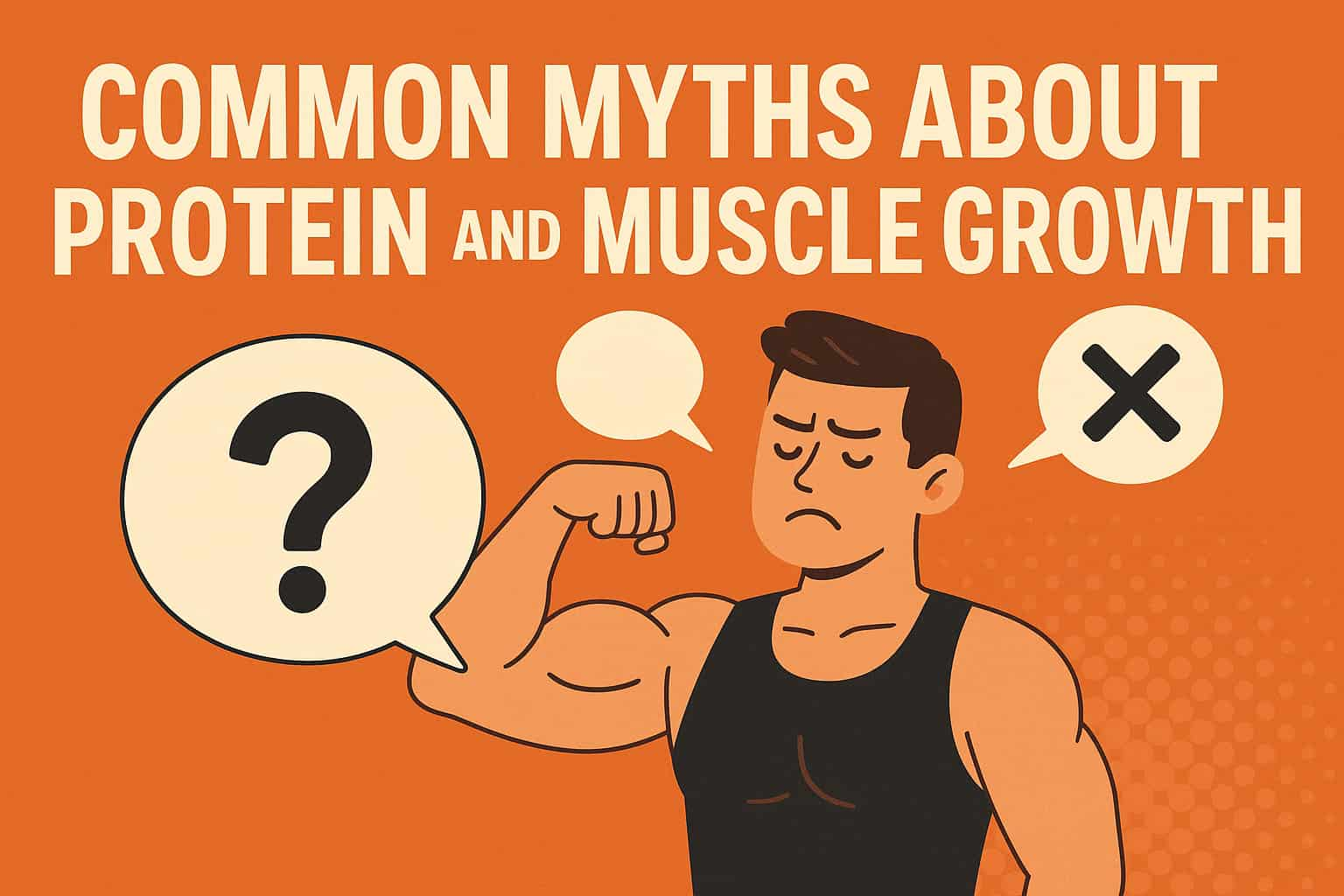

When it comes to building muscle, protein is often surrounded by myths and misconceptions. Let’s clear up some of the most common ones so you can focus on what really works.
❌ Myth 1: “More Protein = More Muscle”
Many people think eating huge amounts of protein automatically leads to faster muscle growth.
In reality, your body can only use so much at a time—typically 20–40 grams per meal. Extra protein just gets stored as fat or used for energy.
❌ Myth 2: “You Need Protein Shakes to Build Muscle”
While shakes are convenient, they’re not mandatory. Whole foods like eggs, fish, beans, and lentils are just as effective for meeting daily needs.
Protein powders are best seen as a supplement, not a replacement.
❌ Myth 3: “Plant Proteins Aren’t Good Enough”
Some assume only animal protein builds muscle.
The truth? With smart combinations (like rice + beans or hummus + whole grain bread), plant proteins can provide all the essential amino acids.
❌ Myth 4: “Timing Doesn’t Matter”
Skipping post-workout protein can slow recovery.
While overall daily intake is most important, having protein within 30–60 minutes after exercise helps maximize muscle repair.
Choosing the Right Protein for You
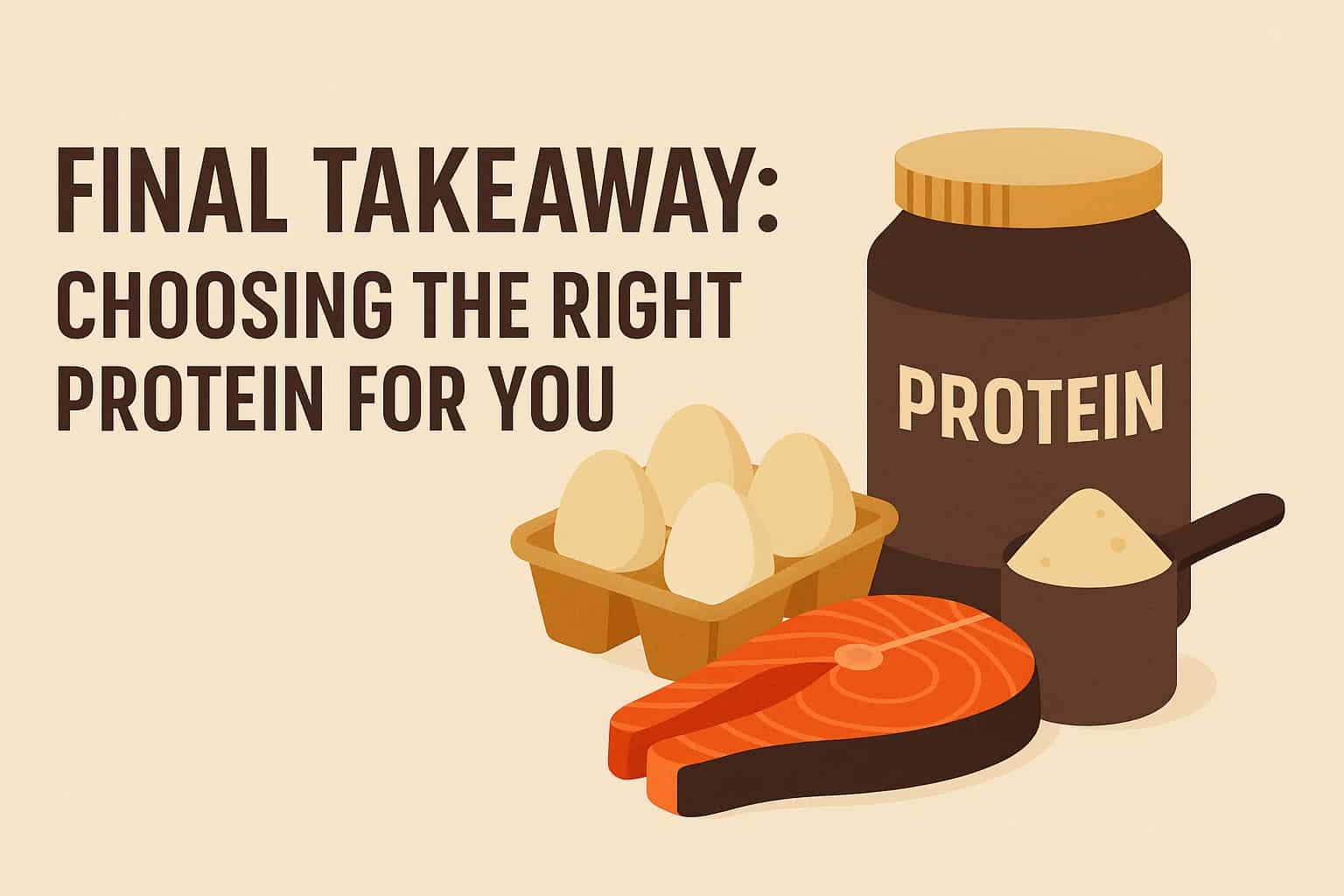

Protein is the cornerstone of muscle growth and recovery, but the best source depends on your lifestyle, dietary preferences, and fitness goals. If you prefer animal-based options, lean meats, fish, eggs, and dairy deliver complete proteins in highly bioavailable forms. For plant-based eaters, lentils, quinoa, soy products, nuts, and seeds can easily provide the necessary amino acids when combined wisely.
The key is balance:
Spread protein intake evenly throughout the day.
Mix animal and plant proteins (if your diet allows) for variety and nutrient diversity.
Use supplements like whey or plant-based powders only when convenience demands it—not as your sole source.
Whether you’re lifting weights, practicing yoga, or simply aiming for better health, the right protein choices will help you recover faster, gain strength, and stay energized.
For more practical fitness and nutrition tips, explore our latest guides at CoreWellFit.com.






